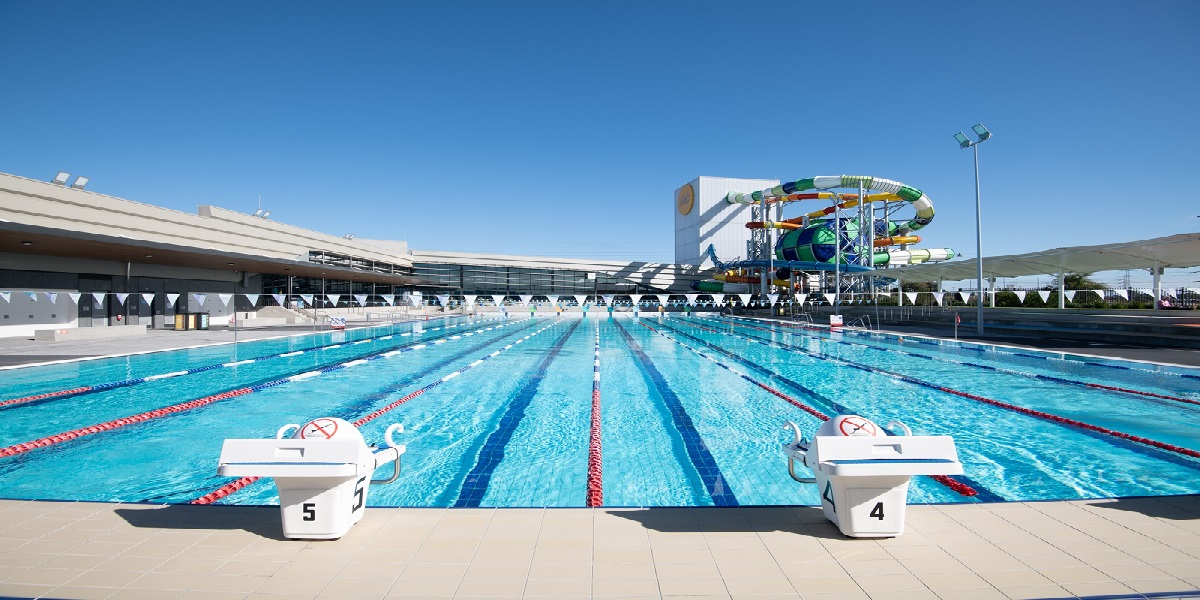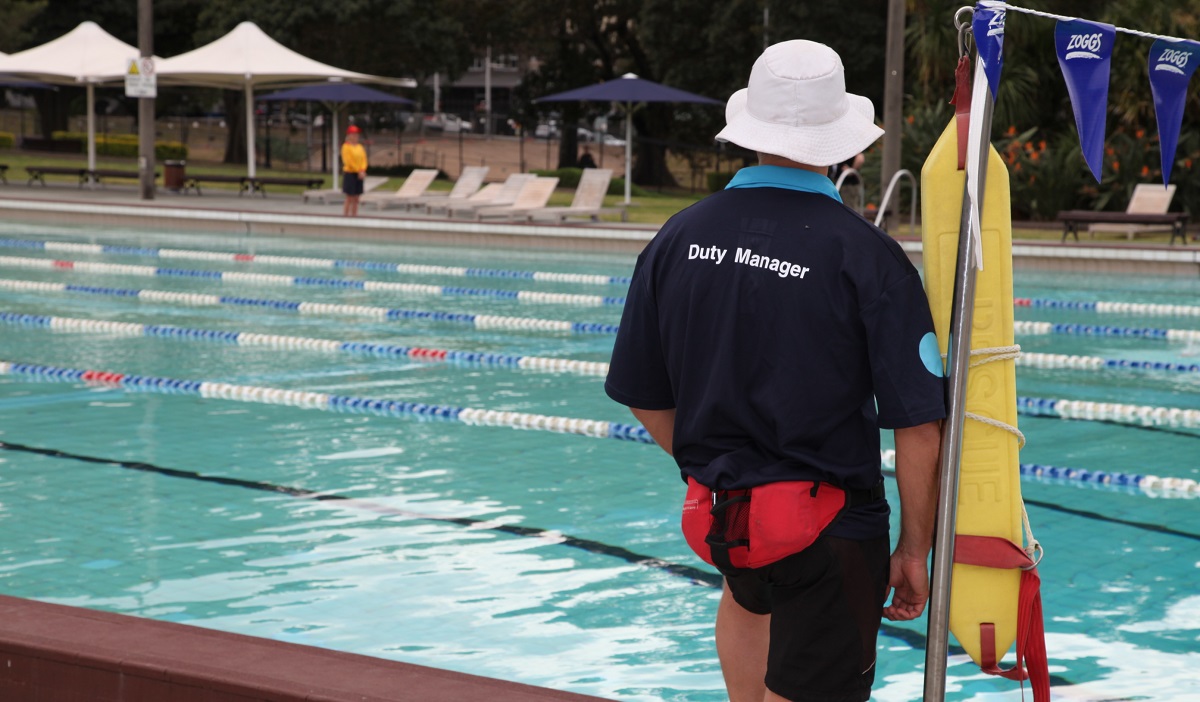Are you returning to the workforce, or looking for a change in career or lifestyle, or a little bit of both? Do you need to bring in a little extra income, but require more flexibility, less stress, or simply a different work environment? These are dilemmas we might all face at some time in our careers or perhaps they been forced on you as a result of the COVID-19 pandemic. The aquatic and community recreation industry could be your answer.
Opportunities in the aquatic industry
 Roles such as swimming and water safety teacher, pool lifeguard, duty manager, aquatic technical operator, community programs officer, customer service assistant – just to name a few – can give you the fresh start, flexibility and fulfilment you might be seeking.
Roles such as swimming and water safety teacher, pool lifeguard, duty manager, aquatic technical operator, community programs officer, customer service assistant – just to name a few – can give you the fresh start, flexibility and fulfilment you might be seeking.
The aquatic industry offers a range of customer-focused and community-oriented roles that help to make a positive impact on people’s lives. They allow you to work all over Australia calling on the many soft skills you may already have from previous jobs. For example, communication, teamwork, customer service, problem solving have an important role to play in the aquatic and community recreation industry.
In addition, the industry includes more technical roles with a specific skillset, which depending on the role, may require skills in first aid, swimming and water safety, health and fitness, risk management, event management and venue/facility management software.
Out with the old, in with the new
Career changes are relatively common these days. You will rarely find a person that regrets leaving their old career behind, even if it was a bumpy road at first. However, if you are at the point where you are seriously considering ‘getting out’ and ‘doing something different’ or 'new', the first step is often the hardest to take. It can be daunting and of course you need to be sure you are making a change for the right reasons and have considered all the implications carefully.
- Step 1. Talk to those close to you and those you trust to give you sound and honest advice.
- Step 2. Spend some time accessing the range of government sites that can help you to think thorough, research and navigate the change you are contemplating, and of course land the job you are after. These sites include:
- JobSearch. Has a job search tool, career profile tool, and tips and advice on actually landing a job and where to go for further help.
- Job Jump Start. Has resources and activities to help you work out what jobs might suit you.
- Your Career. Can help you make decisions about study and training, your first job, or the next step in your career. Asks you to complete a short quiz to provide careers information around study, training, job options tailored to your preferences and needs.
- National Careers Institute. Provides authoritative and accurate careers information and support, irrespective of your age or career stage.
Time to learn
Sometimes, a change in career goes hand in hand with a wish to undertake further study or training. This means you might be looking for a flexible career that allows you to study something you are passionate about, or you are looking for an industry and career pathway that has opportunities to obtain new skills.
Either way, the aquatic industry may be able to accommodate your needs. In the first case, the industry has many part-time and casual work opportunities that are flexible enough to give you time to study or train externally.
Equally, if you are looking for a career that can teach you new skills, then roles, such as pool lifeguard and swimming teachers, allow you to gain new qualifications relatively quickly and inexpensively. Check out Royal Life Saving training courses for more information.
Lifeguards and swimming teachers
 Becoming a lifeguard or swimming teacher is great for those interested in flexible, engaging work with a strong level of responsibility. In turn, both roles have relatively good rates of pay for entry level positions. They also have scope to quickly move into more senior positions such as swim school coordinator/manager or lifeguard coordinator/duty manager. If you are already equipped with a strong set of workplace skills and experience you may be well positioned to quickly move into more senior roles – if that is what you are after.
Becoming a lifeguard or swimming teacher is great for those interested in flexible, engaging work with a strong level of responsibility. In turn, both roles have relatively good rates of pay for entry level positions. They also have scope to quickly move into more senior positions such as swim school coordinator/manager or lifeguard coordinator/duty manager. If you are already equipped with a strong set of workplace skills and experience you may be well positioned to quickly move into more senior roles – if that is what you are after.
Broader sport and recreation roles
If you are interested in the aquatic, sport and recreation industry more broadly, you might like to consider undertaking a course that will give you a qualification in aquatics and community recreation or sport and recreation. Courses range from Certificate I, II, III or IV through to Diploma. A popular course for those who have a clear interest in starting a career in the aquatics industry is the Certificate III in Sport, Aquatics and Recreation (SIS30122).
In choosing the most appropriate course, you should consider your immediate needs, your longer-term goals and aspirations, and the skills you currently possess when it comes to studying and working effectively. If you after a more entry level position (and want to keep your study time shorter), then a Certificate I, II or III course is best. If you have more time and are seeking a role that requires more responsibility and leadership in which you hope to develop a longer-term career, then a Certificate IV or Diploma course is probably the way forward.
Making informed choices
The Learn and Train section of the federal government Your Career website provides access to current, straightforward information to help you make informed choices about your training options. This site allows you to search for, and compare, VET courses and training providers, as well as get information about particular industries and career options.
Job search
Generic job search websites
Job search sites specifically for the sport and recreation industry
Large sport and recreation organisations
Making it happen
Changing careers or re-entering the workforce is not something that comes easily or lightly. It can be an anxious period. As with so many things in life, it is about taking a leap (try to make it an informed one), and putting yourself out there and in a position where good things and positive change can happen.
A survey of the aquatic industry workforce highlighted that those employed in the industry cover a spectrum of ages, with 36% of people aged 18-34 and equally 36% aged 45-64. Many were studying while working (47%) and almost half (46%) had been working in the industry for 11 years or more.
This confirms our belief that the aquatic industry is a great one to be involved in. Along with making safer and healthier communities, it offers people opportunity, connections, and a sense of purpose, along with the flexibility to align and balance your work and personal life.
Further information
If you have any further questions about working in the aquatic industry you can also reach out to your local Royal Life Saving office. We are always happy to help.
